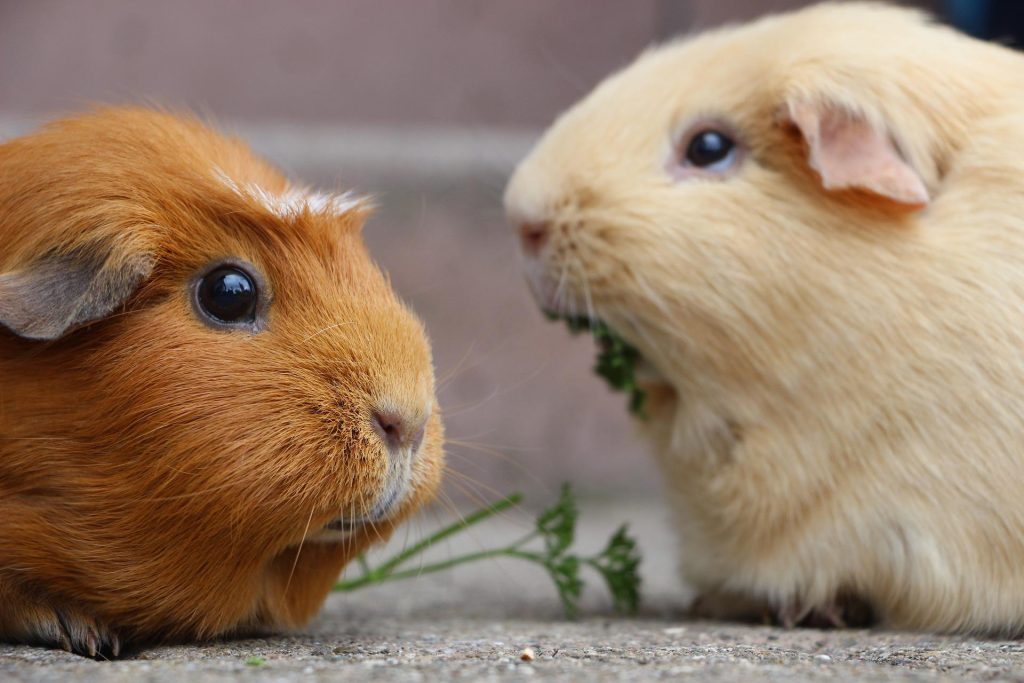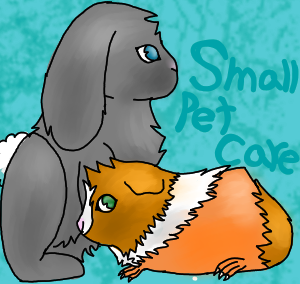Your guinea pig’s diet is an essential to their health. most illnesses can be prevented by a good diet
- Hay: High quality hay should be provided in unlimited quantity and should be changed out daily. it makes up 80% of their diet, and it provides them with the fiber they need along with wearing down their constantly growing teeth. There are two main kinds of hay, timothy and alfalfa. alfalfa hay is good for young, growing, guinea pigs as its high in calcium and protein, and its also good for pregnant guinea pigs. However, too much calcium can lead to bladder stones, so you can serve the young guinea pigs it along with timothy hay. For adult guinea pigs, provide them just timothy hay. Make sure the hay is of good quality, It should have some green, not be moldy, and be dust free.
- Vegetables and herbs: Guinea pigs should get about one cup of fresh vegetables a day. Certain foods, such as mint, basil and carrots should be offered once or twice a week. while others, such as lettuce, kale, bell pepper, and spinach, should be offered every day. Most of the vegetables they eat should be leafy greens.
- Vitamin C pellets: Guinea pigs cannot produce their own vitamin C, so they should get it from their diet.1/8 of a cup of vitamin C pellets a day is a good amount.
- Fruits: fruits are high in sugar, and should only be given as a treat.

What foods are unsafe for guinea pigs? (this is not a complete list, before giving your guinea pig any new food, always check if its safe)
- Avocado
- processed snacks
- Chocolate
- Iceberg lettuce
- Dairy
- Animal products
- Onion and Garlic
- Seeds (choking hazard)
- Bread
- Potatoes
- Bread
- Tomato leaves and stems (the rest of the tomato is fine)
